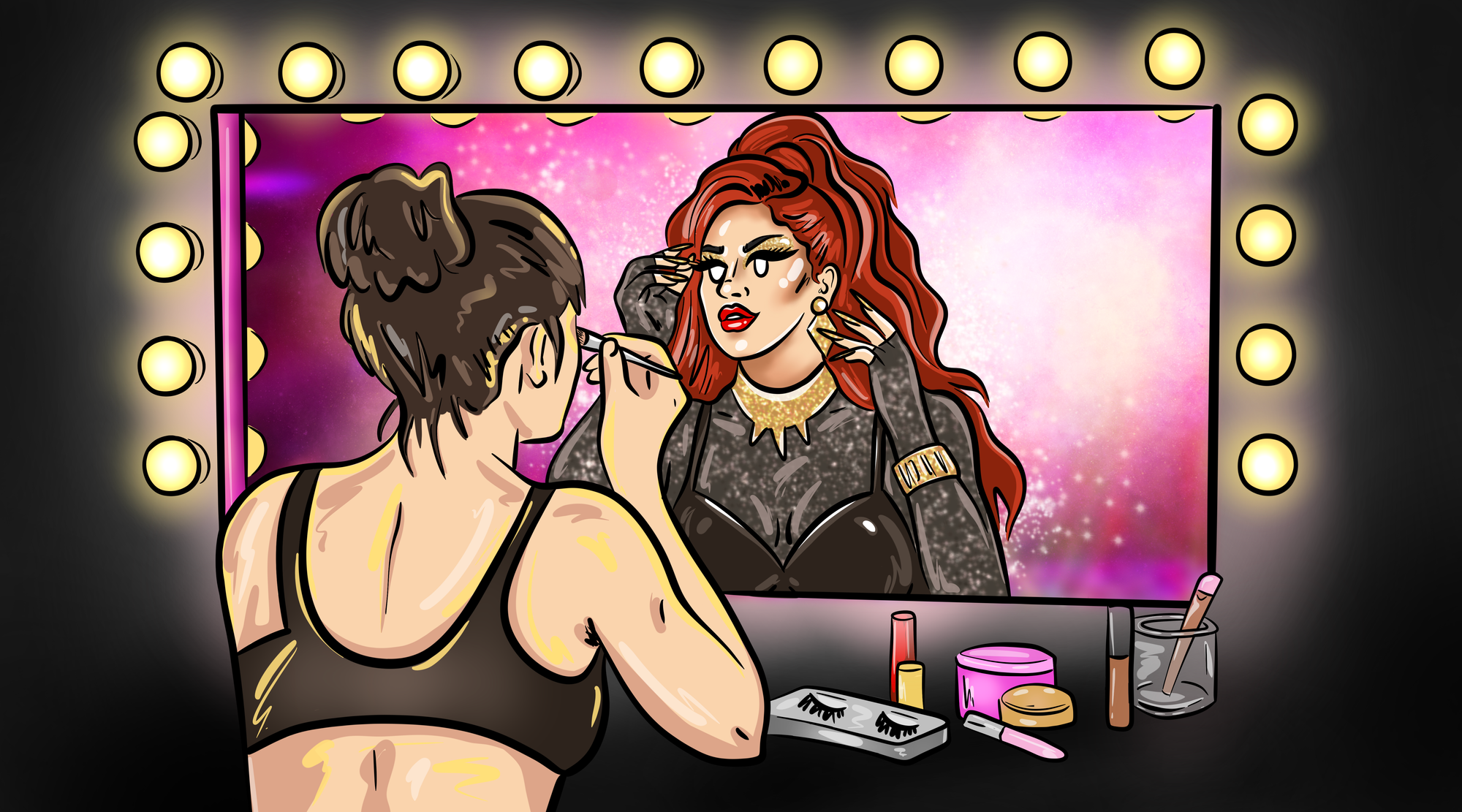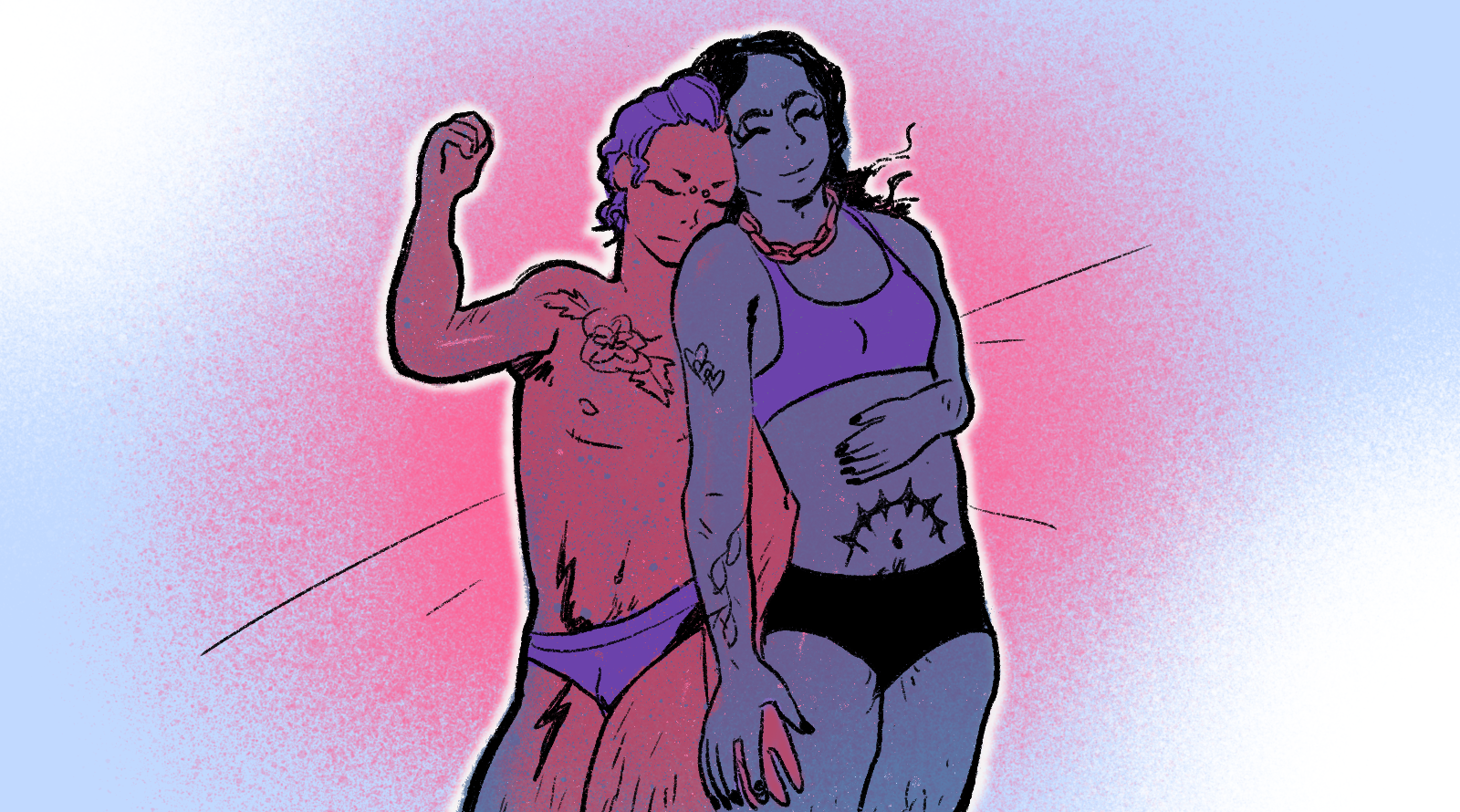Editors note: spoilers for Severance, Succession, Industry, The White Lotus
There is a scene in season two of Severance that I feel viscerally when I watch it. Helly has had enough of her ‘outie’ controlling her body, and finally decides she wants to have sex with Mark S. The camera follows them as they walk down blank corporate hallways into a room of disused office desks. Climbing underneath the desk’s plastic sheets, they start to kiss. The music and dialogue barely speed up as Helly lies down. The camera frames her silhouette with the same quiet care that Mark uses when he cups her head, undresses her, and enters her. There is very little onscreen. There is only the camera focusing on Helly’s sexual pleasure, as she says quietly, ‘yes’.
This scene speaks directly to my body because when I watch it, I feel the presence of sex workers. To explain what I mean, I have to go back to the first TV show of this genre that I watched. By ‘this genre’ I mean the highbrow workplace satire that has popped up everywhere in the last few years: Severance, Industry, The White Lotus, The Menu, and originally, Succession.
This scene speaks directly to my body because when I watch it, I feel the presence of sex workers.
I started to watch Succession for its beautiful cinematography and British sense of humour; I never expected it to explicitly feature a sex worker. Willa first appears tenured to Conor as a sort of sugar baby. The ambiguity of her sex working position is perfectly the point of her sex work, seeing as Conor has hired her to play his high society companion. As the seasons progress, she seems to genuinely choose her role as his girlfriend, insofar as it funds her theatre work. She opts for a kind of embittered love for him, ultimately giving up the arts and relishing in her power as his trophy wife.
Willa is a pretty clear literary device: this is what wealth is; this is how it works. It’s as though the writers decided to throw her in the show to make A Point with a capital ‘P’. What intrigues me more is how everyone around her is using the language of selling sex, too. Businesspeople in Succession frequently describe deals, backstabbings, and hierarchies as “fucking” someone else, or “being fucked”. Any kind of intimacy between characters becomes a powerplay, like Logan hugging Kendall in the season one finale. More explicitly, there are a string of women who sleep with Logan for power, and Tom, whose marriage to Shiv helps him climb up the ladder.
I obviously wouldn’t call this sex work - but still, in Succession, sex is a means to work. Sex work hangs around as an unspoken shadow for these characters, the plot, and even the social commentary. At the same time, the writers have chosen to leave it all implicit. So they have to rely instead on Willa as a bit of a caricature, to make their point obvious.
Now that I’ve noticed this, I can’t unsee it. There’s The White Lotus, where season one’s Rachel decides on whether she should stay with Shane for this money; season two’s Lucia is “the” sex worker character; and season three’s Chloe, who is Greg’s sugarbaby. Then, there’s Industry. Eric tries to sleep with younger women to regain power in the workplace. Yet it’s the unnamed escort he sees who is presented as the sex worker in the show. She dresses conspicuously at a high end resort, and makes a public spectacle when Eric stiffs her bill, acting out the stereotype of how many people believe sex workers act. So, we get complex characters in the world of sex and work, and then we get sex workers.
We get complex characters in the world of sex and work, and then we get sex workers.
The funny thing about these shows is that the sex workers are barely selling sex either. That is to say, we never see them asking for the money upfront. We never see them counting cash. We only ever see them chasing up late payments. Succession and Industry at least, are deeply researched works, where a small look can impact an entire plot. So it’s telling that this genre, so powerful in reckoning with capitalism, the workplace, and sexuality, still doesn’t really know what to do with sex workers. I find watching this genre fascinating because it reflects sex workers’ position in the corporate world, media, art, public spaces, and perhaps every space–present, significant, and yet obscured – in the shadows.
Severance has had a surrogacy plotline, but it hasn’t explored sex work at all. Ironically, or perhaps precisely for that reason, it has one of the best depictions of sex work I’ve seen and related to on TV. When I watch Helly quietly say ‘yes’, in order to reclaim her body on company time, I remember viscerally my memories with clients. How sometimes, sex work has conjured the efficient productivity of work. And how sometimes, it has conjured the intimacy of sex. How in sex work, the two often blur into one. I don’t act or often feel like the caricatures of sex workers in Succession, The White Lotus, and Industry. Sometimes, I feel like Helly. Like I’m navigating a line between work and my body. Like I’m fucking under a giant desk.
My outcalls are often in Central London, and my route back is via Blackfriars station. Late at night, I’ll wait for my train outside its glass walls, cash in my inner pocket, the city skyline directly all around me. There’s no moment where I feel more part of London than this. The borders between myself, my place as a citizen of the capital, and my role as a sex worker blur. I could be one of the dozens of corporate workers waiting at Blackfriars too, treading the same journey.
This is the feeling that Succession, Severance, and other shows of the genre are best at capturing, when they’re not explicitly trying to. There’s a glimmer of an insight there–thinking about everyone’s position in relation to sex and work creates more nuance and empathy in our thinking about sex workers. We can start to understand sex workers as part of the workplace, and life in general. I look forward to the day that’s on TV.
Are you a sex worker with a story, opinion, news, or tips to share? We'd love to hear from you!
We started the tryst.link sex worker blog to help amplify those who aren't handed the mic and bring attention to the issues ya'll care about the most. Got a tale to tell? 👇☂️✨





